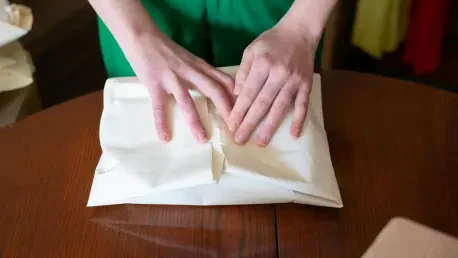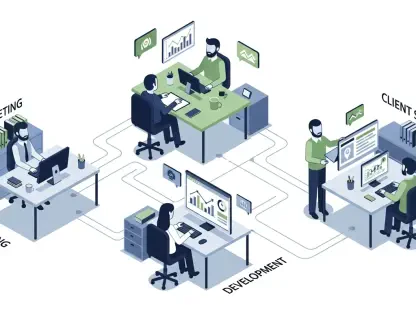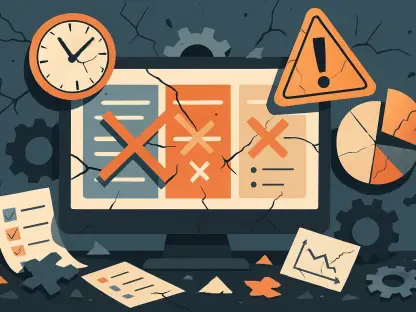We’re thrilled to sit down with Marco Gaietti, a seasoned expert in business management with decades of experience in strategic management, operations, and customer relations. Today, Marco shares his deep insights into Microline’s latest innovation, the AL 80 Maxi horizontal packaging solution. This cutting-edge machine is designed to meet the evolving demands of the tissue industry while pushing boundaries in flexibility, efficiency, and sustainability. In our conversation, we explore the inspiration behind this new model, its standout features, its impact on production processes, and how it positions Microline as a leader in automated packaging systems.
How did Microline carve its niche in the packaging industry, and what sets your approach apart from others?
Microline has built a strong reputation as an Italian innovator in automatic end-of-line systems, focusing on industries like tissue, food, and cosmetics. Our core strength lies in designing solutions that balance reliability with adaptability. We prioritize understanding the unique challenges of each sector, which allows us to create machines that not only meet current needs but also anticipate future trends. What sets us apart is our commitment to compact, efficient designs paired with cutting-edge technology, ensuring our clients get high performance without sacrificing quality or space.
What sparked the idea for the AL 80 Maxi, and how does it improve on the original AL 80 model?
The AL 80 Maxi was born from listening to the evolving needs of the tissue industry. The original AL 80 was already a reliable and compact solution, but we saw an opportunity to expand its capabilities. Clients were asking for more versatility in handling different product sizes and configurations. The Maxi version builds on the original’s solid foundation with enhanced capacity to handle larger rolls—up to 280 mm in diameter—and a broader range of collations. It’s essentially a more powerful, flexible evolution that retains the efficiency and dependability our customers loved in the first model.
What specific challenges in the tissue industry were you targeting with this new machine?
One of the biggest challenges in the tissue industry is the need for flexibility due to varying product sizes and packaging requirements. Manufacturers often deal with frequent changes in roll dimensions or bundle setups, which can slow down production if the equipment isn’t adaptable. Additionally, there’s growing pressure to reduce waste and improve sustainability without compromising speed or quality. With the AL 80 Maxi, we aimed to tackle these issues head-on by offering a machine that switches seamlessly between configurations and supports eco-friendly materials, all while maintaining high output.
How does the AL 80 Maxi provide greater flexibility compared to other packaging solutions in the market?
The flexibility of the AL 80 Maxi comes down to its optimized mechanical and software architecture. We’ve designed it to handle a wide variety of product collations and materials with minimal downtime during transitions. Whether a client needs to switch from single to double rolls or change the wrapping film type, the machine adapts quickly and efficiently. This kind of agility is rare in the market, where many systems require extensive retooling or adjustments for even small changes, and it gives our customers a real edge in meeting diverse production demands.
Can you walk us through the range of products the AL 80 Maxi can handle and any limitations it might have?
The AL 80 Maxi is incredibly versatile, designed to pack single or double tissue rolls with diameters up to 280 mm. It can manage various configurations depending on the collation settings, making it suitable for a wide range of tissue products. While it excels in this space, there are natural limits—extremely oversized or non-standard shapes outside the specified diameter range would require a different system. But for most tissue industry needs, and even some applications in food and cosmetics, it’s a highly capable solution.
How does the machine achieve such a high packing speed of up to 65 rolls per minute without sacrificing quality?
Achieving a speed of up to 65 rolls per minute while maintaining quality is all about precision engineering. The AL 80 Maxi uses a streamlined conveyor system to position rolls accurately before they reach the packaging station. Every step, from wrapping to sealing, is optimized for efficiency without cutting corners. We’ve integrated advanced controls to ensure consistent tension and alignment of the wrapping film, so even at high speeds, the final pack remains taut, secure, and ready for distribution. It’s a balance of speed and meticulous attention to detail.
What steps have been taken to enhance the sustainability of the packaging process with this machine?
Sustainability is a core focus for us with the AL 80 Maxi. The machine is compatible with a range of wrapping films, including eco-friendly monomaterials and other sustainable options, which help reduce environmental impact. Beyond materials, we’ve designed the system to minimize waste during production—there are no scraps or excess material generated in the process. Additionally, the energy-efficient design reduces consumption, especially in the shrink tunnel phase, supporting our clients’ goals to lower their carbon footprint while keeping costs down.
How does the compact design of the AL 80 Maxi benefit facilities with limited production space?
The compact design of the AL 80 Maxi is a game-changer for facilities where space is at a premium. We retained the small footprint of the original AL 80 while boosting its capabilities, meaning it can fit into tight production lines without needing major layout changes. This is especially valuable for smaller manufacturers or plants looking to maximize their existing floor space. It’s plug-and-play in many ways, delivering high performance without demanding the extensive room that larger systems often require.
Can you explain how the remote monitoring and diagnostics system works and the advantages it offers?
The remote monitoring and diagnostics system in the AL 80 Maxi is all about keeping operations smooth and proactive. It allows technicians to access real-time data on the machine’s performance, from output rates to potential issues, no matter where they are. Maintenance alerts pop up before small problems become big ones, enabling quick fixes without halting production. For operators, this means less downtime, better planning for maintenance, and ultimately a more continuous, efficient workflow. It’s like having a tech expert on call 24/7.
What’s your forecast for the future of packaging solutions in the tissue industry over the next few years?
I believe the tissue industry will see a continued push toward smarter, more sustainable packaging solutions in the coming years. Automation will play an even bigger role, with a focus on machines that can handle diverse products while minimizing energy and material use. There’s also likely to be a stronger emphasis on data-driven systems—think more advanced remote monitoring and predictive maintenance to eliminate downtime. At Microline, we’re already positioning ourselves to lead in these areas with innovations like the AL 80 Maxi, and I’m excited to see how the industry evolves to meet growing environmental and efficiency demands.









